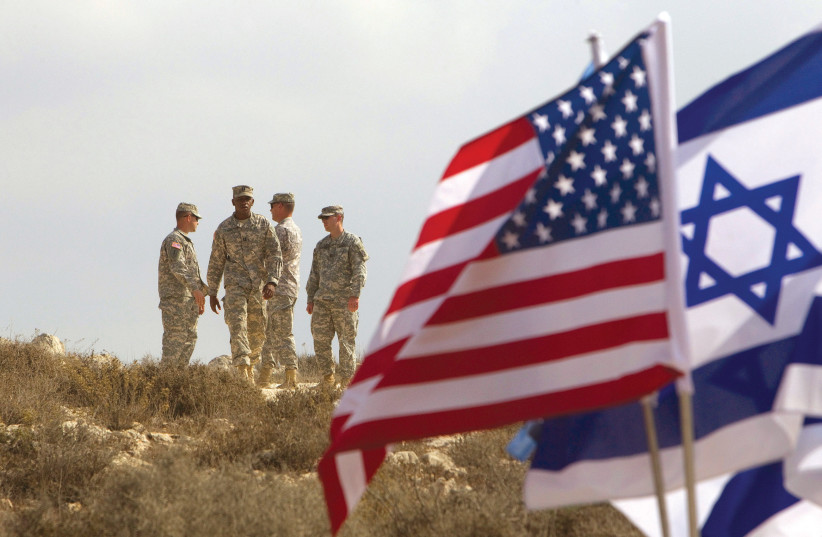What will peacekeeping efforts look like in the future of the Gaza Strip? The United States and Israel are weighing various options for the future of the Gaza Strip, exploring the inclusion of US troops and other national forces should Israel successfully defeat Hamas terrorists, US media reported.
Urgency is of the utmost importance in this scenario, pushing the need for crucial conversations following the IDF's invasion of the Gaza Strip, currently in action. According to Bloomberg's initial report, other options for peacekeeping efforts would include the establishment of a peacekeeping force modeled on the same that guides the 1979 Egypt-Israel peace treaty, with others seeing Gaza put under UN oversight.
Confidential US informants told US media that anything could change. On Tuesday, the US said they were considering using troops as part of the future peacekeeping effort, but on the last day, they have since decided otherwise.
Blinken told a Senate Appropriations Committee hearing the status quo terror group Hamas being in charge of the densely populated enclave could not continue, but Israel did not want to run Gaza either.

"We can't have Hamas running Gaza"
US Secretary of State Antony Blinken's appeal to the US Senate examined a number of options, according to US media.
“We can’t have a reversion to the status quo with Hamas running Gaza,” Blinken told the Senate Appropriations Committee. “We also can’t have — and the Israelis start with this proposition themselves — Israel running or controlling Gaza.”
The White House and the State Department declined to comment, according to US media.
Democratic senators Chris Van Hollen (D-MD) and Richard Blumenthal (D-CT) confirmed to US media that the conversations were ongoing and that the next steps were still in question.
“There are ongoing conversations regarding the possible composition of an international force,” Van Hollen said, refusing to go into specific detail. “They are very preliminary and fragile. I do think it’d be important to have some kind of multinational force in Gaza as a transition to whatever comes next,” he continued.
Blumenthal added that the congressional delegation that visited Israel last month considered the possibility of the inclusion of Saudi Arabian troops in the multinational force, but that there was no confirmation of the United States military's direct involvement, US media reported.
“There certainly has been discussion with the Saudis about their being part of some international peacekeeping force if only to provide resources, and, longer term, supporting Palestinian leadership and a separate state, obviously. Reconstruction of Gaza will require a vast amount of resources, which the Saudis potentially could help provide,” he told US media.
“At some point, what would make the most sense would be for an effective and revitalized Palestinian Authority to have governance and ultimately security responsibility for Gaza.”
US Secretary of State Antony Blinken
Following Bloomberg's initial report, Senator Ben Cardin (D-MD), who serves as the chair of the Senate Foreign Relations Committee, told US media that he supported the idea of a multinational force overseeing the area but that he had concerns about placing US troops in Gaza.
Behind closed doors, Blinken alluded to the US government's preference for the Palestinian Authority's rule in Gaza come the collapse of Hamas, if possible, but also added that there are other options that would include other nations regionally and international agencies to step in for security and governing purposes.
“At some point, what would make the most sense would be for an effective and revitalized Palestinian Authority to have governance and ultimately security responsibility for Gaza,” Blinken said. He added, “Whether you can get there in one step is a big question.”
Israel has said that when they eliminate Hamas, they do not want control over the Gaza Strip, though it was still unclear if any other Arab neighbors wanted to take part in the multinational governing body.
Hamas has been designated a terrorist group by the US and the European Union.
